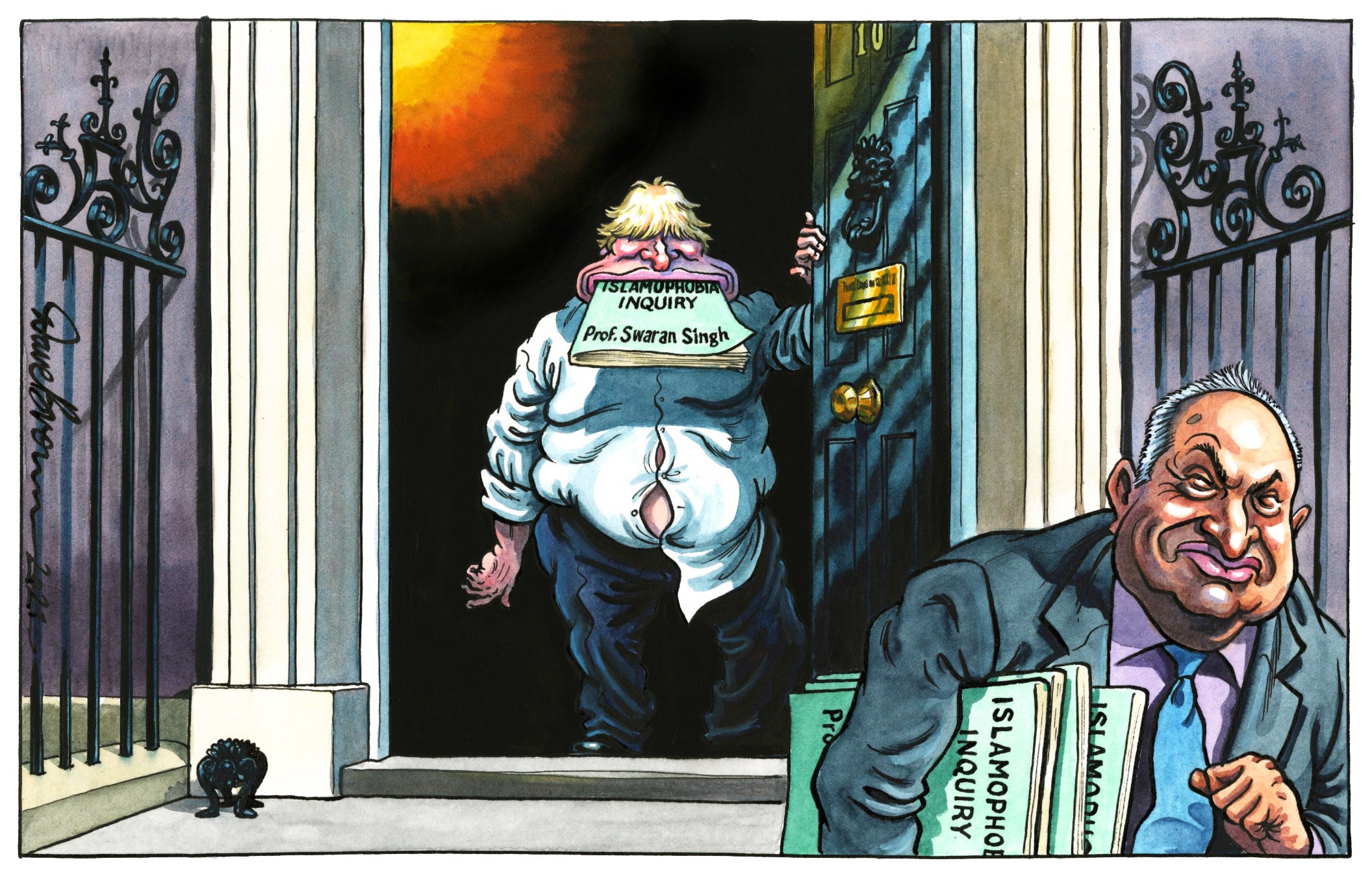Evidence of anti-Muslim discrimination in the Conservative Party is likely just the tip of the iceberg
Editorial: Professor Swaran Singh was a little soft on some of the top Tories – it is obvious there is work that needs to be done

The review of anti-Muslim sentiment in the Conservative Party by Professor Swaran Singh makes for uncomfortable reading, and was surely meant to. The review, commissioned as long ago as December 2019, had a considerable body of credible evidence to get through and testimony to examine.
If anything, the 1,418 complaints relating to 727 separate incidents recorded by the party between 2010 and 2015 must represent the tip of a much larger iceberg, given that so many other incidents and “microaggressions” will have gone unreported. The sheer volume of complaints, and what they represent, is indictment enough of the modern Conservative Party.
The fact is that it doesn’t seem to matter that much how much work David Cameron did on widening the mix of candidates in safe Conservative seats; or how many people of colour Theresa May or Boris Johnson appointed to their governments and to jobs in No 10 – the casual Islamophobia festering around the Conservative grassroots appears to be a major issue, even if Prof Singh’s review suggests that claims of “institutional racism” were not borne out. It beggars belief to suppose it has been eradicated in the past few months.
In fact, Prof Singh was a little soft on some of the top Tories. He concluded that higher profile incidents such as remarks made during Zac Goldsmith's London mayoral campaign against the (Muslim) incumbent Sadiq Khan, and Boris Johnson's comments on Muslim women in burqas, “give the impression to many that the party and its leadership are insensitive to Muslim communities”.
It is surely more than a mere “impression”. For his part, Johnson has pledged not to repeat such language “while prime minister” – but is that enough? Tellingly, Johnson has said only that he is “sorry for any offence taken” over his remarks.
Of course, the response of some Conservatives is classic “whataboutery”. The Tory Islamophobia scandal is supposed to be the mirror image and equivalent of Labour’s own antisemitism scandal – as if that somehow excuses or diminishes these moral crimes.
Yet it is not a competition to see which of our major parties is the less racist. As has been shown in this report – and the EHRC inquiry into the Labour Party – they are both infected with different species of discrimination, with different roots, varied emanations and (sadly too often) more or less inadequate responses from a defensive party leadership.
To an insulted Jewish person in the street, or someone of Muslim faith subjected to a Twitter pile-on, it doesn’t really matter much about which party has the less bad record in dealing with the problem.
If there is another common theme in the way our major political parties deal with such incidents, it is a curious failure of bureaucracy and procedure, something the political classes usually fuss about.
Both parties have been found to have useless complaints mechanisms, insufficient support and protection for “whistleblowers”, and poor training and inadequate resources among those trying to deal with the problem.
That, in turn, suggests that the political parties, like so many institutions, have long been in denial about the impact of racism. Perhaps they still are.
Join our commenting forum
Join thought-provoking conversations, follow other Independent readers and see their replies
Comments
Bookmark popover
Removed from bookmarks